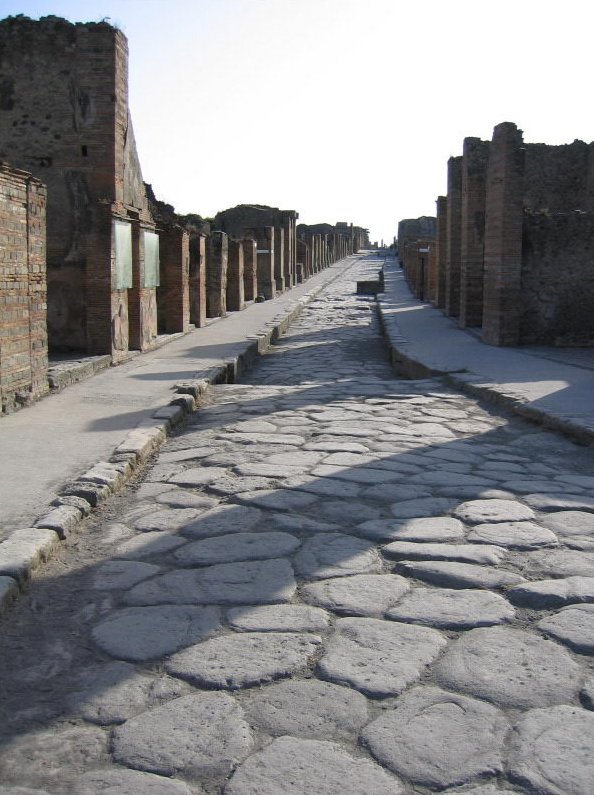The simple answer is that the Romans built them. There. Satisfied? I didn't think so. We see in the Romans a penchant to absorb and syncretize the things that they admired from other cultures, and in one respect, roads were no different. Government building of roads has been with humanity since at least the Ancient Persian Empire, and it is likely that the Etruscans brought a road-building ethic with them from Asia Minor, and that the Romans appropriated this idea. And if there was one thing that the politicians could all agree on, it was roads.

The Romans didn't just level dirt paths; they had a method of paving these roads which made them durable and easy to drive on. Merchants from all over mainland Europe used carts to transport goods, and sturdy, flat roads ensured that their more expensive breakable items would remain intact on the way to market. Travelers and pilgrims eager to visit the famous Temple of Saturn in the heart of Rome could now make the trip without fear of getting lost, since Augustus made the Temple the starting point for the marker stones. If the numbers on the stones got smaller, you were heading for Rome, hence the famous saying.
The politics of roads was always contentious, with many Patrician Senators using their vast treasuries to pave large, wide roads and name them after themselves. Like the Gladiatorial games, this was a good way to endear themselves to an underrepresented populace of mostly Plebeians. However, anyone who built a road in the early Republic was required to pay for its upkeep, which could be a problem if a wealthy Senator got involved in shady financial dealings that went south.
Eventually, the Roman Empire was connected by a large system of roads, which were eventually all made public property. Armies could march over the roads very easily compared to marching through dangerous forests and hunting paths. While this also helped the enemy armies of 'barbarians' to invade, the Romans made a habit of building a system of outposts and forts near choke points, and had a swift communication system to help ward off the smelly hordes. The roads lasted for centuries, some of them being preserved up to this present day.



No comments:
Post a Comment